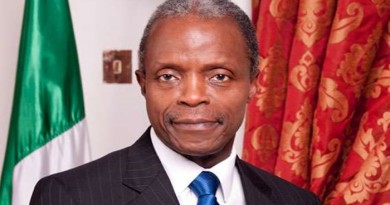The Candidates: I am the most investigated politician in Nigeria, says Atiku
- A single individual can’t end poverty – Atiku
- Anti-grazing law may be unconstitutional – Atiku
The Presidential candidate of the Peoples Democratic Party (PDP), Atiku Abubakar, has described himself as ‘the most investigated politician in Nigeria,’ noting that, up until now, no one has convicted him of any crime.
He added that even ex-President Obasanjo investigated him, but came up with nothing.
Atiku spoke at The Candidates, a political forum hosted by the Daria Media and NTA on Wednesday.
His statement was in response to a question by a member of the audience, who read an excerpt from ex-President Olusegun Obasanjo’s book, My Watch, in which he (Obasanjo) made allegations of corruption against his erstwhile Vice President, Atiku.
Obasanjo has since said that he had forgiven Atiku, noting that though the Turaki Adamawa had his fault, he is the better of the two front line presidential candidates for the 2019 general elections.
Reacting to a question rate of poverty in his home state of Adamawa, Atiku refused to bear the blame for the poverty level in the state.
Atiku disagreed with the host of The Candidate, Kadaria Ahmed, saying, as one of the two main employers of labour in Adamawa State, he is not responsible for the perceived high poverty rate in the state.
He argued that however anyone might argue, an individual is incapable of ending poverty.
His vice presidential running mate, Peter Obi, said that instead of being condemned, Atiku should be commended for being the only presidential candidate in Nigeria who has not only made a success of his own life, but he is also an employer of labour, apart from the Adamawa State Government.
According to him, the anti-grazing law which restricts the free movement of cattle will be looked into, as it may not be constitutional.
The former Vice-President said the Constitution guarantees free movement and as such it might be difficult to implement the anti-grazing law.
He said, “We have to look at the constitutionality of those laws.
“I am not sure they are part of the constitution which guarantees free movement and the right to reside wherever you want in the country. So, we have to look at this.”




